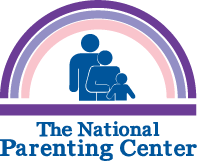Maybe it seems you have little to be thankful for if your teenager is sullen, uncommunicative, and is openly embarrassed to seen with you much of the time. But this Thanksgiving, remember to give thanks for the little blessings in your life with your teenager: 1. Give thanks for good health — your teens and […]
Support and Advice
Even though your teenager is growing up, and in a sense, growing away, there are still ways you can reaffirm and maintain family unity — now and in the future. How can you do this? • Face your problems together as a family. Don’t let denial or blame come between you. Facing pain together can
Hope, renewed strength, and the reassurance that you are not alone are major advantages of participating in parental support groups. These may be informal networks of friends, or they may be more formal groups, such as “Toughlove” or “Mothers Without Custody”. These are not therapy groups, but groups run by the participants who tend to
Many teens shoplift for the sport of it, under pressure from friends, or because they have problems delaying gratification. How can you prevent your teen from engaging in this form of risk taking? • If your teen feels peer pressure to shoplift, talk about ways to say no and discuss some good reasons to do
Has your teenager had a lot of accidents and injuries lately? A series of accidents or obviously reckless behavior can be a sign of depression, even suicidal feelings, and professional counseling may be in order. If your teen doesn’t seem to have serious emotional problems but is still accident prone, try the following strategies: •
Teenage girls are most at risk for developing eating disorders such as anorexia nervosa and bulimia. Both boys and girls can be at risk for compulsive overeating and obesity. Being even more specific, who are the teenagers most at risk for eating disorders? • First, perfectionistic teens are at high risk for anorexia nervosa and
There are an estimated one million teen pregnancies each year in this country and not all of them are accidental. Many children have children to have someone to love, to be important, to prove love, or for a host of other reasons. Most don’t realize what parenthood really means. Communicating a realistic view of parenthood
It’s amazing how many “Old Wives’ Tales” there are about babies. Many are passed down from generation to generation, but just because Grandma says so doesn’t mean it’s true. Here are some: “A fat baby is a healthy baby.” Not true. The fact is that fat babies often turn out to be fat adults. “Solid
Babies spend most of the first year in ignorance of the fact that they’re individual people separate from their parents. As they learn that objects and people do have an existence of their own, separate from themselves (as they learn what psychologists call object competency), so they discover that separateness. It’s a huge intellectual leap
New babies don’t cry to be picked up, but they often cry because they’ve been put down. The living warmth, support, and gentle movement of your body, with the sound of your heart and breathing, are much closer to what your baby is used to than the solitude of the crib. For a while, your












